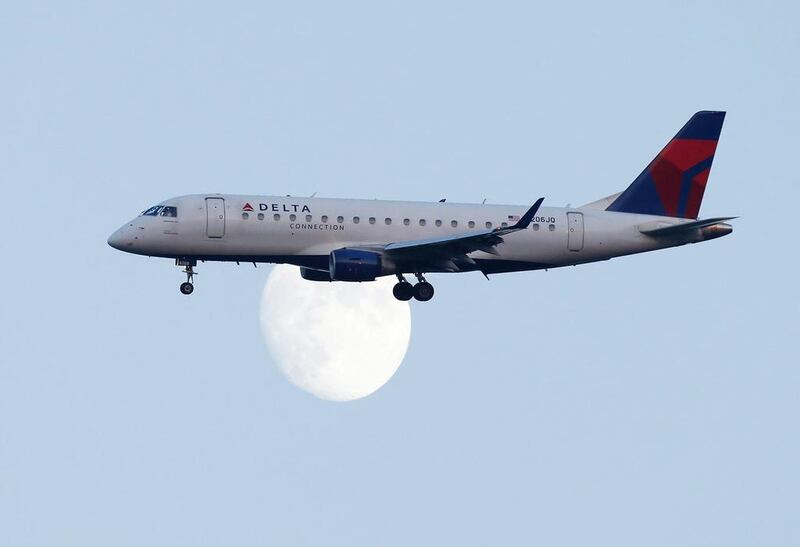American consumers have voiced their support for Arabian Gulf carriers embroiled in a row with their US rivals over open skies agreements, a US government website shows.
A series of comments posted by individuals have hit out at the poor service offered by US carriers, the high fares they charge and the importance of competition in American life.
The US departments of state, commerce and transportation last month set up a docket on regulations.gov, providing an open forum to receive “insights and feedback from stakeholders” before any decision is made over claims by US airlines that Gulf carriers are in violation of open skies agreements.
The fact-finding initiative followed lobbying by the biggest three airlines in the US – Delta, United and American – and their unions, who want the president Barack Obama’s administration to prevent Gulf carriers from adding extra routes to the US and review the open skies deal with Gulf governments.
On April 30, William Lex, a US consumer, wrote: “I neither like nor fly Emirates but I am definitely against any roll back of the open skies agreement and against anything that would stifle or inhibit competition between international airlines. When I fly internationally, I always try to fly a non-American carrier because they provide a better passenger experience. Make Delta, United and American compete in the marketplace, not in the halls of the US Congress.”
Bill Hough from San Jose California echoed that point of view, saying: “During the past decade, US government approval of airline mergers has resulted in the creation of a customer-unfriendly oligopoly that colludes to offer horrible customer service while nickel-and-diming their customers with endless nuisance fees.”
“Moreover, Americans like competition and they love the kind of cut-throat, price-slashing competition the Gulf carriers have brought to air travel,” his comment on April 30 added.
James Roberts, another consumer from Texas, wrote: “US carriers need to compete to win business, and retain customers ... [the] US airlines’ customer service is lousy because of overworked, underpaid employees. US airlines currently overcharge international travellers to subsidise domestic passenger travel.”
He added: Doug Parker, the chief executive of American Airlines, recently claimed he plans to charge airfares as [if] fuel was US$100 barrel, not [the] current rate; hence American’s fares are artificially higher than they need to be to compete. This is referred to as fuel surcharge. It’s penalising American travellers, business and citizens.”
A comment posted by the California Hotel & Lodging Association also detailed the benefits of open skies to the whole US travel industry.
“More competition and more choice for travellers is unquestionably good,” it said. “I urge you not to limit the Gulf carriers’ access to the United States. Preserve open skies.”
Previously, the logistics company Fedex, the low-cost carrier Jet Blue and the US Travel Association also highlighted the economic benefits they received from the open skies deal.
Last week, US carriers claimed in a report that Gulf carriers had expanded in the US without generating new traffic.
Abu Dhabi’s Etihad Airways responded yesterday to the claims by releasing a report undertaken by the US-based consultancy Edgeworth Economics that said economy passenger numbers on routes it operated between America and the Indian sub-continent “for the Big Three [US Airlines] and their global alliances actually increased by 18 per cent, or an additional 223,000 passengers”, between 2009 and last year, even though they lost overall market share.
For premium passengers on these routes during the same period, the number of passengers carried by US airlines and their alliance partners grew by 27 per cent, or more than 33,000, and their market share also fell significantly, according to the report.
“The claims ... that Etihad Airways and other Gulf carriers are damaging their business and taking ‘their’ passengers, are not only false, but also arrogant. They do not ‘own’ these passengers, nor do they do have a right to them,” Kevin Knight, Etihad Airways’ chief strategy and planning officer, was quoted as saying in the report.
Etihad also said yesterday that last year it fed 182,000 passengers onto US airlines – including American, Delta and United – and the number was estimated to grow by 65 per cent to about 300,000 passengers this year. It said it would file its full response to the allegations by US carriers, which include claims it received billions of dollars of government subsidies, with the US Congress by the end of this month.
selgazzar@thenational.ae





